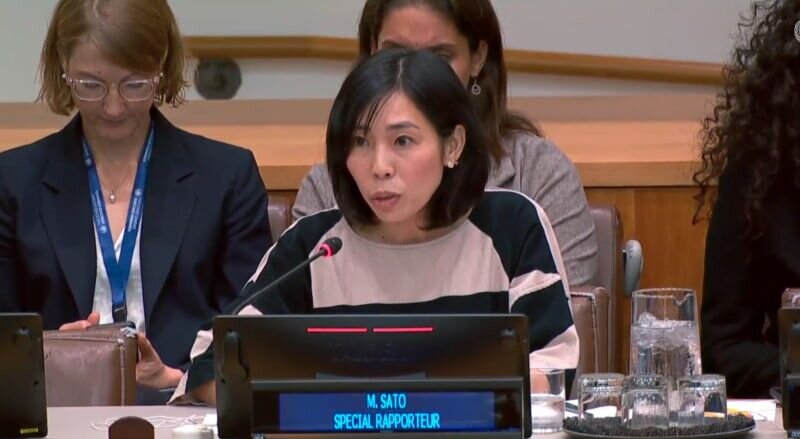12-day war on Iran a ‘blatant violation’ of UN charter, says special rapporteur

TEHRAN – The United Nations Special Rapporteur on the situation of human rights in Iran, Mai Sato, has described the recent 12-day war against Iran as a “clear and blatant violation of the UN Charter,” warning of its devastating human and environmental consequences.
In a report presented to the Third Committee of the UN General Assembly, Sato said the joint Israeli–U.S. military offensive brought immense suffering to the Iranian people — suffering that, she noted, “deserves redress and compensation.”
According to the report, Israel launched a series of military strikes against the Islamic Republic of Iran on June 13, targeting several locations, including nuclear facilities. The United States later joined the assault, striking nuclear sites monitored by the International Atomic Energy Agency (IAEA).
“These attacks should never have occurred,” Sato said. “They carried the risk of catastrophic humanitarian and environmental consequences that could have destabilized the entire region.”
Sato emphasized that the use of force by Israel and the United States constituted a “flagrant breach of international law and the UN Charter.”
The report highlighted the human toll of the conflict, noting that roughly 1,100 people — including women and children — were killed, and that hospitals, schools, and civilian infrastructure were among the targets. One of the most controversial strikes hit Evin Prison in Tehran, which the rapporteur described as “unjustifiable.”
Beyond the casualties, Sato said the war displaced millions of Iranians and severely disrupted healthcare for vulnerable groups. “Pregnant women were denied prenatal and emergency care,” she noted, adding that the humanitarian situation remains dire.
According to Iranian officials, the Israeli strikes on June 12 violated both international law and Iran’s national sovereignty, hitting Tehran and several other cities, including key nuclear installations. A number of scientists, military personnel, and civilians were reported killed.
The United States joined the campaign in the early hours of June 22, conducting direct attacks on the Fordow, Natanz, and Isfahan nuclear sites.
In retaliation, Iranian armed forces launched a large-scale missile strike on Al-Udeid Air Base in Qatar, the main U.S. Air Force headquarters and strategic command hub in West Asia.
The conflict ended on June 23, when the U.S. President announced a ceasefire agreement between Iran and Israel. The Islamic Republic of Iran reiterated that it had not initiated hostilities, and declared that it would halt its response if Israel ceased its unlawful aggression.
Leave a Comment